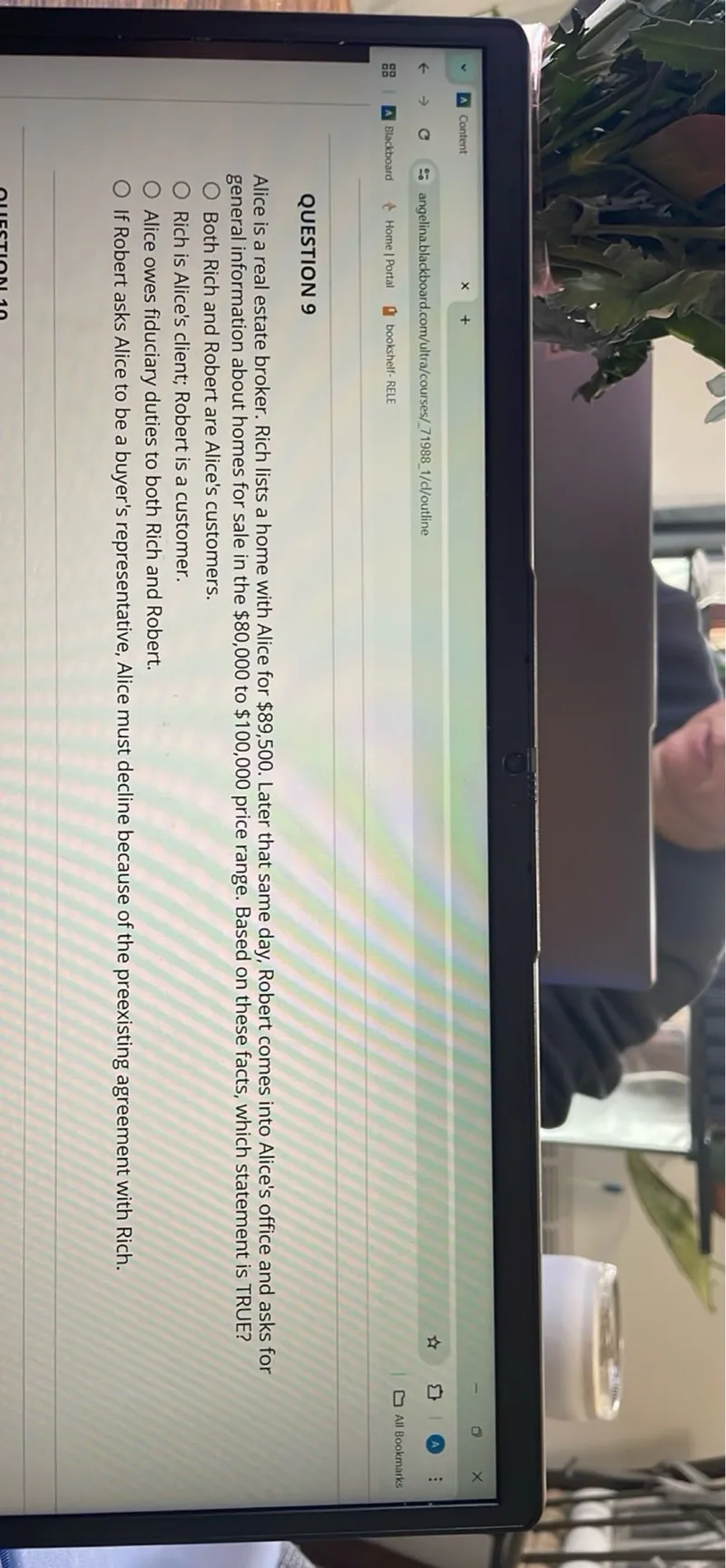Questions: Alice is a real estate broker. Rich lists a home with Alice for 89,500. Later that same day, Robert comes into Alice's office and asks for general information about homes for sale in the 80,000 to 100,000 price range. Based on these facts, which statement is TRUE? Both Rich and Robert are Alice's customers. Rich is Alice's client; Robert is a customer. Alice owes fiduciary duties to both Rich and Robert. If Robert asks Alice to be a buyer's representative, Alice must decline because of the preexisting agreement with Rich.

Transcript text: Alice is a real estate broker. Rich lists a home with Alice for $\$ 89,500$. Later that same day, Robert comes into Alice's office and asks for general information about homes for sale in the $\$ 80,000$ to $\$ 100,000$ price range. Based on these facts, which statement is TRUE?
Both Rich and Robert are Alice's customers.
Rich is Alice's client; Robert is a customer.
Alice owes fiduciary duties to both Rich and Robert.
If Robert asks Alice to be a buyer's representative, Alice must decline because of the preexisting agreement with Rich.





